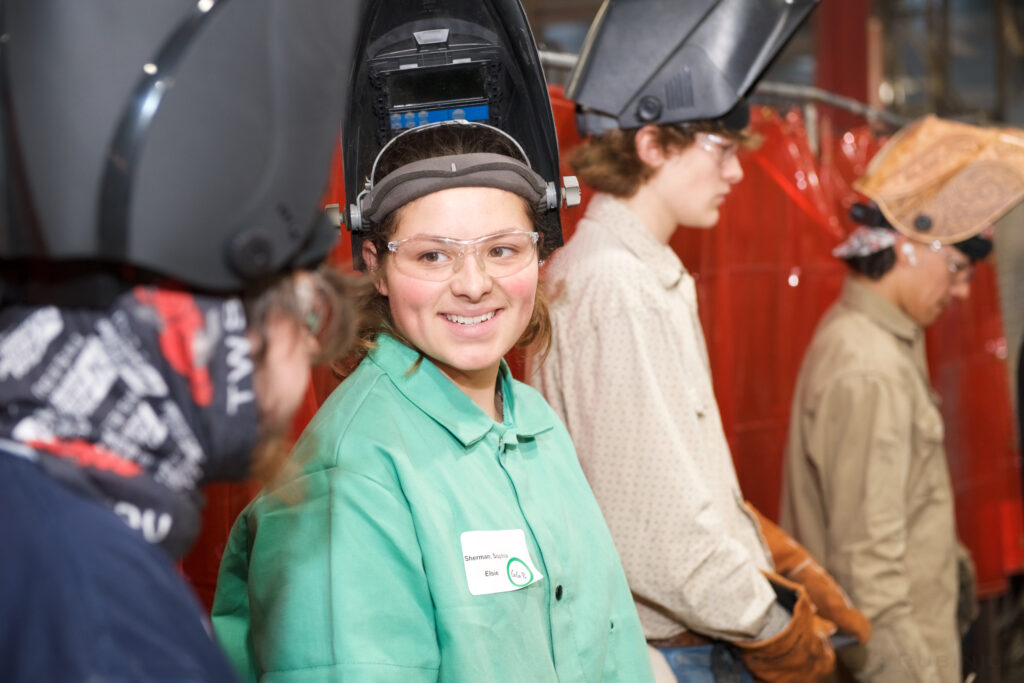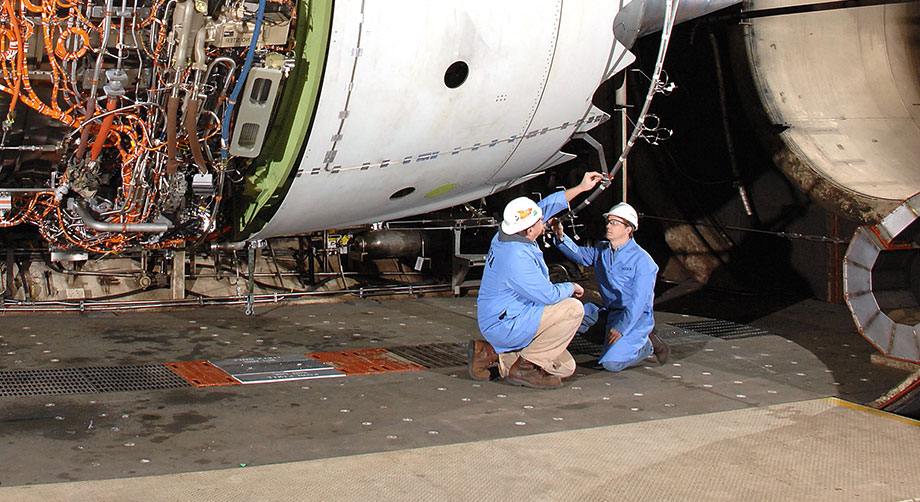Should I Become a Wind Turbine Technician?
Should I Become a Wind Turbine Technician?
There is no doubt that the world is facing major challenges when it comes to climate change, the consumption of fossil fuels, and the future of our planet. One way that many communities are responding to these concerns is with wind power—and that means a need for wind turbine technicians, also known as wind techs.
If you’re interested in a career in the mechanical sciences and are passionate about energy technology, you could be considering going to school to become a wind turbine technician. But is it a good career?
Let’s take a look at what wind turbine techs do, where they work, and how much they earn.
What Do Wind Turbine Technicians Do?
In short, wind turbine technicians keep wind turbines running. These large machines may be based on simple technology, but they require trained technicians to ensure they’re operating efficiently.
Wind turbines primarily consist of just three components, including a tower, blades, and a nacelle. The nacelle is where the magic happens, turning the kinetic energy of wind into mechanical energy, which is what drives the generator to produce electricity.
Wind techs are responsible for installing each of those components, performing regular maintenance, and making repairs as needed. The Bureau of Labor Statistics (BLS) explains that their work can require troubleshooting, testing and collecting data, and servicing adjacent equipment—such as substations, underground transmission systems, and control systems.
Where Do Wind Techs Work?
Wind techs will naturally spend a lot of their time working outdoors. As a wind turbine technician, you’ll need to be comfortable working at great heights, often wearing safety equipment in order to climb tall ladders and rappel down to the blades. You’ll also want to be comfortable in confined spaces, including within the nacelle and underground.
Most wind technicians, according to BLS data, work for electric power generation organizations, utility construction firms, and repair or maintenance companies. Some may find work with scientific or technical companies, and others may find success as self-employed or contract technicians. Wind techs may be required to be on call outside of typical office hours in order to make urgent repairs, and some travel may be necessary in order to reach rural wind farms.
How Much Do Wind Turbine Techs Earn?
Earnings can vary depending on your location, employer, and level of experience. According to the BLS, wind turbine technicians earned a median annual salary of more than $56,000 in 2020—or hourly wages of more than $27. The lowest-paid 10% of technicians earned less than $40,000 and the highest-paid 10% earned upwards of $83,000.
As wind power technology continues to increase across the country—particularly in the Midwest and the Great Plains and along the coasts—jobs for trained techs are also increasing. In fact, the BLS projects a whopping 61% growth for wind tech jobs between 2019 and 2029. That is much, much faster than the average growth for all occupations.
How Can I Become a Wind Turbine Technician?
Successful wind techs need to have a mechanical inclination, good communication skills, and the physical stamina to perform the work day in and day out. It also helps to be detail oriented and to have a knack for problem solving and troubleshooting issues.
If you are interested in becoming a wind turbine technician, the best thing to do is find a training program in your area to give you the hands-on experience and knowledge you need. Programs typically last between one and two years and include plenty of time spent working on industry-standard equipment or even time out in working wind farms.
The Imagine America Foundation is proud to partner with a robust network of schools who offer just such career and technical education programs all across the country. Search for one near you today!
And don’t forget to register with us so you can apply for our scholarship programs, which give qualified students a $1,000 discount on their tuition at our member schools!
More On Mechanical Sciences
Let’s Talk Picking the Right Trade School with Universal Technical Institute
Let’s Talk Picking the Right Trade School with Universal Technical Institute: SEASON 5, EPISODE 3 MORE FROM OUR EPISODE ON picking the right career school with universal technical institute Find Your Perfect Training Program At UTI, our mission is to prepare technicians for the careers…
Let’s Talk Women in Welding with Tulsa Welding School
Let’s Talk Women in Welding with Tulsa Welding School: SEASON 5, EPISODE 2 MORE FROM OUR EPISODE ON Women in welding WITH tulsa welding School Contact TWS — Houston, TX Click Here For A Virtual Tour! Location 243A Greens Rd. Houston, TX 77060 Contact tulsa…
Let’s Talk Aviation with Spartan College of Aeronautics and Technology
Let’s Talk Aviation with Spartan College of Aeronautics and Technology: SEASON 5, EPISODE 1 MORE FROM OUR EPISODE ON aviation CAREERS WITH SPARTAN COLLEGE OF AERONaUTICS AND TECHNOLOGY Contact Spartan College — Tulsa Main Campus Click Here For A Virtual Tour! Location 8820 East Pine…
Leave a Reply Cancel reply
- - ADVERTISEMENT - -
Categories
- Alumni Series (13)
- Automotive (57)
- Aviation (15)
- Business (14)
- Business & Arts (18)
- Career College Expositions (7)
- Career Development (96)
- CCC Blog (1)
- CCC Podcast (9)
- College Resource (90)
- College Showcase – Lincoln Tech (6)
- College Showcase – New Jersey (8)
- College Showcase – Pennco Tech (1)
- College Showcase – Universal Technical Institute (2)
- Continuing Education (154)
- Cosmetology (3)
- Counselor Resources (108)
- Criminal Justice (3)
- Dental Assistant (2)
- Education (109)
- Financial Literacy (17)
- Health Sciences (50)
- Heritage Series (3)
- High School Recruitment Series (4)
- Housing Series (10)
- HVAC (8)
- Imagine America Scholarships (12)
- Information Technology (17)
- Massage Therapy (5)
- Mechanical Sciences (109)
- Medical Assistant (12)
- Millennial Student Series (4)
- News (11)
- Nursing (22)
- Online education (13)
- Pandemic Proof Series (4)
- Personal Finance (17)
- Podcast (90)
- Research (11)
- Road Map Series (2)
- Scholarships (12)
- Social Media Series (4)
- Strata Tech (3)
- Student Success (29)
- Study Tips (3)
- Time Managment (1)
- Top 10 (10)
- Trucking (2)
- Uncategorized (14)
- Universal Technical Institute (19)
- Veteran Affairs (8)
- Welding (24)
- Women in Skilled Trades (3)
Tags
- - ADVERTISEMENT - -






